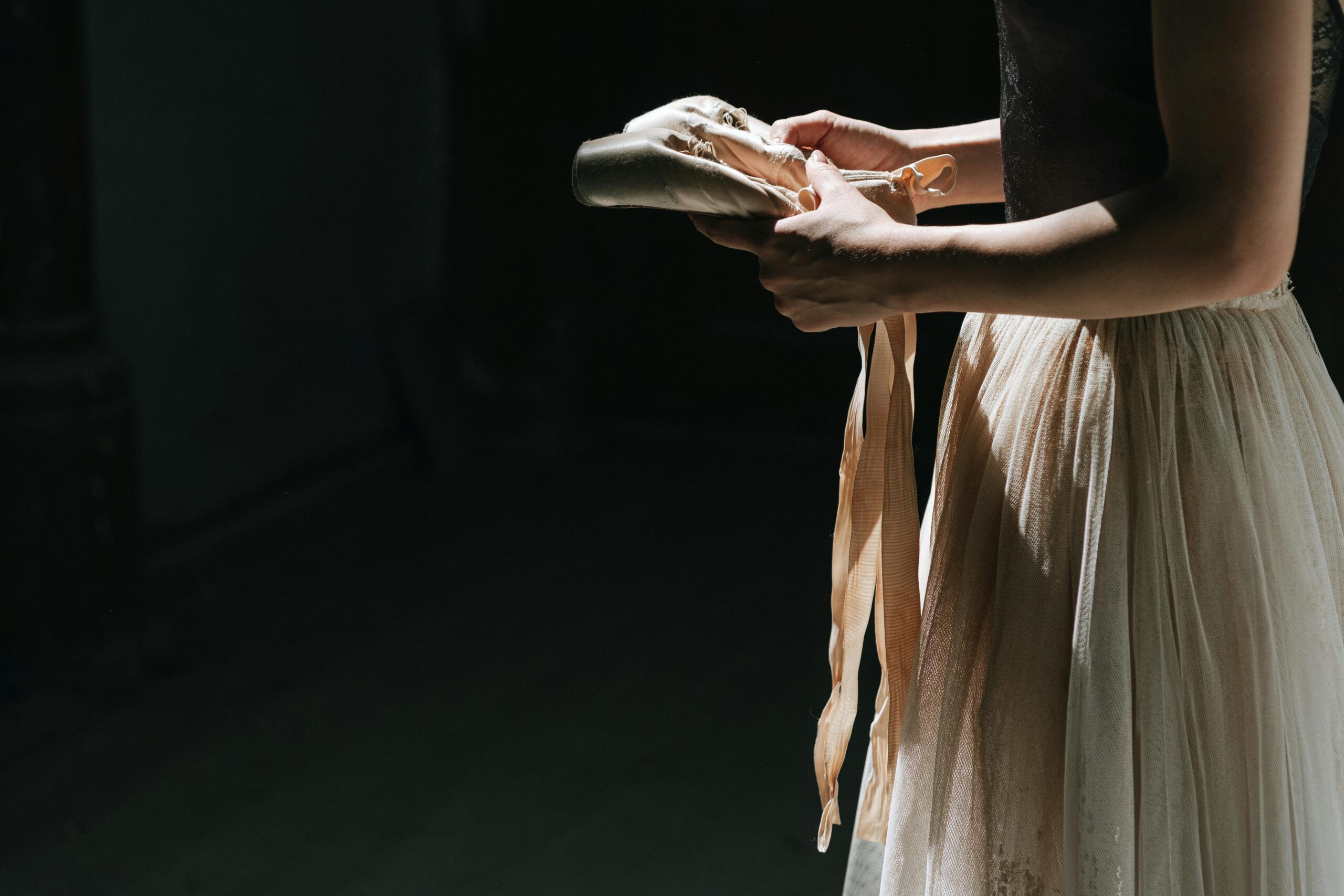Perth Parents Who Starved Their Ballerina Daughter on a Strict Vegan Diet Until She Was a ‘Wafer-Thin’ 28KG Learn Their Fate

Love is supposed to nourish. To protect. To give wings. But sometimes, love becomes a cage—one so tight, so suffocating, that it leaves behind nothing but a fragile, starving soul.
In a quiet home in Perth, a teenage ballerina—once full of grace, energy, and promise—became a ghost of herself. At 17 years old, she weighed only 28 kilograms. Her muscles, once sculpted by years of dance, had withered. Her eyes, once bright with passion, sank into a hollow frame. But the tragedy wasn’t just her body wasting away—it was the silence, the neglect, and the blind belief that led her there.
Her parents, the very people meant to nourish her, clung to an extreme vegan ideology. They ignored the warnings, dismissed the cries for help, and held onto the illusion that she was perfectly fine—even as she stood on the edge of collapse. By the time the world stepped in, the damage was undeniable. The justice system had to decide: Was their misguided love an excuse, or was it a crime?
A Starving Ballerina’s Silent Cry

A ballerina is expected to be strong, agile, and full of life. But at 17, this young dancer barely had the strength to stand. Her weight had plummeted to 28 kilograms—lighter than a child half her age. Her skin clung to fragile bones, her muscles wasted away from years of malnutrition. The grace that once defined her movements had faded, replaced by exhaustion and frailty.
Her parents enforced a strict vegan diet, convinced they were giving her the healthiest life possible. Organic, plant-based, and “pure”—but dangerously incomplete. Without the nutrients her body desperately needed, she began to break down. Her growth slowed, her energy disappeared, and even the simple act of walking became a struggle. Yet, those responsible for her well-being refused to see the truth.
She wasn’t just physically starved. She was isolated, cut off from the world, homeschooled, and deprived of social connection. Teachers and doctors raised concerns, but their warnings were dismissed. Her reality was controlled, her suffering ignored. In a house where love should have been a source of strength, it became a force of destruction.
The Warnings That Fell on Deaf Ears
The signs were there—clear, urgent, and impossible to ignore. Teachers noticed her declining health. Doctors warned of malnutrition. Concerned individuals tried to intervene. Yet, every alarm was silenced by two people: her parents.
They dismissed the medical concerns, insisting their daughter was perfectly healthy. Her father confidently told authorities that she was thriving, claiming she had “good energy” and danced for hours each week. Even when confronted with undeniable evidence of her deteriorating condition, he laughed off the warnings. A doctor urged them to allow an electrocardiogram (ECG) to check for heart damage. They refused, calling it “too intrusive.” When informed that their daughter was at risk of cardiac arrest, they still did nothing.
Her meals were carefully controlled—limited to organic fruits, minestrone soup, and occasional ice cream. No protein. No essential nutrients. Just a belief that their way was the only way. And as their daughter withered, they remained convinced that everything was fine.
The truth was in front of them, yet they refused to see it. Love should protect. But when love is blinded by belief, it can become just as dangerous as neglect.
The Battle to Save Her Life

By the time help arrived, it was almost too late. The warnings that had been ignored for years finally led to action. In late 2020, child protection authorities launched an investigation. Teachers, dance instructors, and medical professionals had spoken up—desperate to save a girl who was slowly fading away.
When she was finally admitted to Perth Children’s Hospital, doctors diagnosed her with grade 4 malnutrition—the most severe form. Her body had been running on empty for too long. Every organ, every muscle, every system had been weakened by starvation. There was no time to waste. A nasogastric feeding tube was inserted to restore essential nutrients. X-rays and tests confirmed what doctors had feared—her body had suffered profound damage.
But even in the hospital, her parents fought against the treatment. They insisted she was naturally petite, claiming she had been a premature baby. They tried to control every aspect of her care, questioning medical decisions, opposing procedures, and even attempting to supervise her toilet visits. At one point, her mother set a timer for brushing her teeth, only allowing her to spit with permission.
It was clear that intervention was the only way forward. The girl was legally placed under the care of the Department of Communities, and doctors took full control of her recovery. Over the next 50 days, she gained seven kilograms and grew 3.4 centimeters in height. Her body was healing. But the scars of neglect ran deeper than physical malnourishment. Years of control, isolation, and psychological manipulation had left wounds that no feeding tube could fix.
Parental Denial Despite Obvious Signs of Malnutrition
Judge Linda Black condemned the parents for their willful blindness, pointing out their ongoing attempts to deceive medical professionals and authorities. Despite clear evidence of their daughter’s malnutrition and distress, they continuously denied the severity of her condition. In the court, Judge Black said, “I simply do not and cannot accept that the two of you needed someone to point out to you that your daughter was starving, that she was fading away. That she was failing to grow, that she was failing to thrive. You engaged in willful blindness of the most extreme kind.”
Judge Black also noted the girl’s stunted growth, highlighting that at age six, she weighed just 14kg, and at 13, only 21kg. By age 17, she weighed the same as an average nine-year-old. Judge Black said, “She was obviously chronically malnourished. Neither of you were starved or malnourished… therefore I can only conclude that you knew how to make sure you had enough food but you failed to do the same for your daughter.”
Her parents gave her a Barbie doll for her 17th birthday in the hospital and tried to organize a Disney Princess visit. Judge Black said, “By the time your 17-year-old daughter was hospitalised despite your protests she was watching Tellytubbies… Thomas the Tank Engine and having princess birthday parties.”
The judge also mentioned that the couple lacked remorse and credibility and were evasive during their lengthy trial. She said, “endeavouring to obscure the obvious truth even when it was staring them in the face.” Their lies and refusal to seek help prolonged their daughter’s suffering, worsening her condition. The judge emphasized that their actions had betrayed their duty to protect her, leading to irreversible harm that could not be undone.
Torn Between Justice and Family Loyalty
Even after years of suffering, the girl’s deepest pain wasn’t just physical—it was emotional. In the eyes of the law, her parents had failed her. But in her heart, they were still the only family she had ever known.
As the case moved through the courts, she wrote a letter pleading for mercy. She didn’t beg for justice. She didn’t seek punishment. Instead, she feared what would happen if they were taken away. She worried about becoming homeless, about being alone in the world. She blamed herself for their arrests, believing that if she had just been stronger, none of this would have happened.
This is what long-term control and isolation do. They blur the lines between love and harm, between protection and imprisonment. Her parents had shaped every aspect of her reality, and even after the world recognized their neglect, she still saw them as her protectors.
Judge Linda Black acknowledged the emotional weight of the letter but didn’t hold back in her ruling. She made it clear that the suffering this girl endured was not her fault. She told the court that it was her parents’ actions—not her testimony, not the intervention of doctors, not the judgment of the law—that led to their convictions. The girl had been denied the chance to grow, to thrive, to live a normal life. And now, she was left with a painful paradox—loving the very people who had nearly destroyed her.
Justice Delivered but Damage Done
When the final judgment was handed down, the courtroom wasn’t filled with relief—it was filled with a lingering sense of loss. The father was sentenced to six years and six months in prison, the mother to five years. But no prison sentence could undo the years of suffering their daughter endured.
Judge Linda Black condemned the parents for their willful blindness, stating that they didn’t need anyone to tell them their daughter was starving. The evidence was in front of them every day—her frail frame, her stunted growth, the exhaustion in her every movement. Yet they ignored it. Even as she lay in a hospital bed, weighing the same as a nine-year-old, they gave her a Barbie doll for her 17th birthday, as if refusing to acknowledge the reality of the damage they had done.
The court’s decision brought justice, but it could not heal the wounds left behind. Their daughter had been denied the chance to grow, to thrive, to become independent. And now, as they faced their punishment, she was the one left carrying the weight of their choices.

A Second Chance at Life
A body can heal with food, but what heals a soul that’s been starved of love, freedom, and identity? Years of control don’t just disappear when the chains are broken. This girl’s battle wasn’t just about regaining weight—it was about reclaiming the life that had been stolen from her. Her body had suffered, but so had her mind. Even as she neared adulthood, she struggled with basic life skills, still drawn to the comforts of childhood. Not because she refused to grow up, but because she had never been allowed to. Her world had been limited, her choices made for her, her independence stripped away before she even had the chance to build it.
Justice was served, but a courtroom sentence doesn’t erase years of suffering. Prison bars won’t undo the nights she spent too weak to stand, the days she spent believing this was normal. She is free now, but freedom is unfamiliar territory. When a person has been controlled for so long, even the ability to choose for themselves can feel overwhelming. She may no longer be physically confined, but the mental scars remain. Healing isn’t just about eating again—it’s about learning to trust, to make choices, to feel worthy of a life she was once denied.
This case isn’t just a tragedy—it’s a warning. Neglect isn’t always loud. It doesn’t always come in the form of bruises or screams. Sometimes, it’s disguised as love. As belief. As discipline. But real love nurtures, it doesn’t control. Real belief adapts when the truth is clear. Real discipline doesn’t starve a child into submission. Justice has been served, but now, the real battle begins. After everything she has endured, will she finally learn what it means to truly live?
Featured Image Source: Pexels
Loading...






